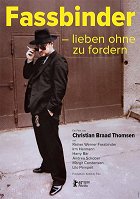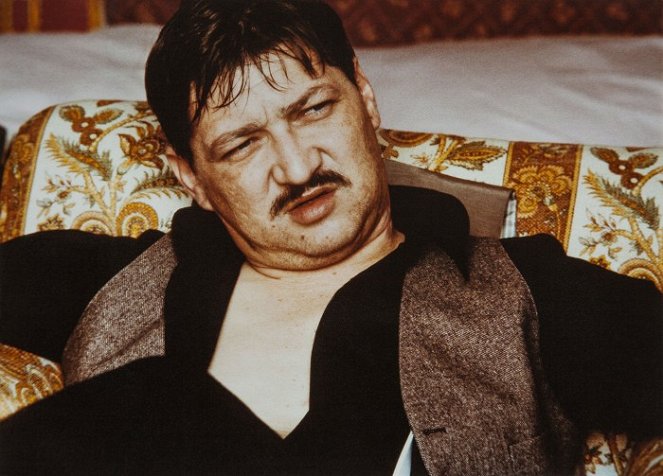Ohjaus:
Christian Braad ThomsenKäsikirjoitus:
Christian Braad ThomsenNäyttelijät:
Rainer Werner Fassbinder (a.o.), Lilo Pempeit (a.o.), Irm Hermann, Harry Baer, Wolfgang HessJuonikuvaukset(1)
Rainer Werner Fassbinder was probably Germany's most significant post-war director. His swift and dramatic demise at the early age of 37 in 1982 left behind a vacuum in European filmmaking that has yet to be filled, as well as a body of unique, multi-layered and multifarious work of astonishing consistency and rigour. From 1969 onwards, Danish director and film historian Christian Braad Thomsen maintained a close yet respectfully distanced friendship with Fassbinder. Fassbinder – Lieben ohne zu fordern is based on his personal memories as well as a series of conversations and interviews he held with Fassbinder and his mother Lilo in the 1970s. The film also contains current interviews with Irm Hermann and Harry Baer, both of whom were close to Fassbinder. Beginning with Fassbinder's extraordinary childhood in traumatised post-war Germany, the film, which is divided into seven chapters, provides an illuminating, intimate and moving tribute that bears witness to the enduring relevance of both the man and his work. Today in particular his oeuvre continues to provoke us to engage with controversy and tension – be it aesthetical, creative or critical. (Berlinale)
(lisää)Arvostelut (1)
This standard documentary portrait offers a chronological cross-section of RWF’s life. The words are mostly those of Fassbinder himself and, to a lesser extent, his two friends/colleagues, Irm Hermann and Harry Baer, who often talk more about themselves than about Fassbinder, and the maker of the documentary, who puts the facts into context with a brief commentary. Though Thomsen knew Fassbinder personally, the documentary maintains a rare matter-of-fact tone and does not even make an attempt at polemics (the film begins with the most explicit expression of opposition to Fassbinder’s work). Due to the uninventive alternation of talking heads and film clips, the documentary comes across as somewhat stiff and monotonous. It is not helped by its division into seven rather vaguely defined chapters. The most beneficial parts of the film are those in which Fassbinder talks about his childhood, which obviously had a great influence on the key themes of his work. The openness of his confessions may be particularly beneficial for those who want to view Fassbinder’s work from an auteur-psychoanalytical perspective. Overall, however, the film contains little information that wasn’t provided many years earlier in, for example, the documentary I Don’t Just Want You to Love Me, which better strikes a better balance between revealing Fassbinder’s personal life and the characteristic elements of his films. Experts in Fassbinder will not learn much that is new; for newcomers, on the other hand, the documentary fails to convey what makes the films of this cynical and, in most shots, apparently ill-tempered man special.
()

